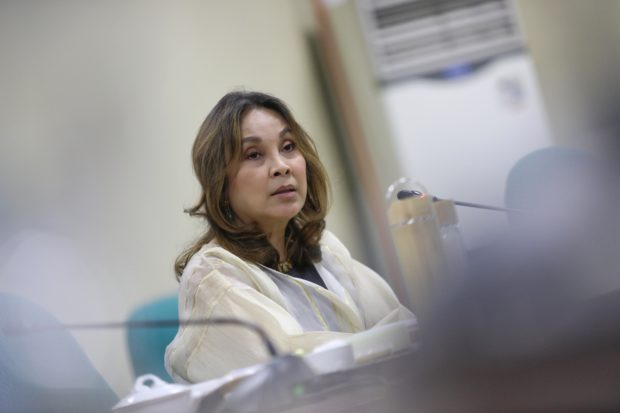Legarda chides Palace: Why so fixated on imports?

Senate President Pro Tempore Loren Legarda (File photo from the Senate Public Relations and Information Bureau)
MANILA, Philippines — The government’s appetite for importation and alleged neglect of local farmers could hamper the country’s participation in the 15-member Regional Comprehensive Economic Partnership (RCEP), Senate President Pro Tempore Loren Legarda warned on Tuesday.
“Let us not be so fixated on importation. Let us first develop our natural industries, our natural resources in a way that is sustainable and taps the skills and intelligence of the human capital before thinking of importing again,” she said, addressing the country’s economic managers during a hearing of the Senate foreign relations committee.
Legarda made the remark as she took on the task of shepherding the Senate’s ratification of the RCEP—a thorny and complex task that no other senator wanted, according to her.
The Senate panel is deliberating on whether to approve the RCEP, described by proponents as a “mega-free trade agreement” among 15 nations in the Asia-Pacific region, including China, Japan and Australia.
In September 2021, then President Rodrigo Duterte signed the Philippines’ participation in the RCEP. But under the law, such executive action requires the concurrence of at least two-thirds, or 16 votes, of the 24-member Senate to be binding.
At the hearing, Legarda called on agencies pushing the RCEP to give their “firm commitment” to ensuring the competitiveness of affected sectors, especially agriculture.
“I wonder what’s so mysterious about importation that [the executive department] is so fond of it. We have good laws and policies, but then these are stymied by complicated processes at the Bureau of Customs,” she said.
Farmers’ groups warned that opening up the country to more free trade with neighbors would only harm a sector already struggling to compete with cheaper imported meat and vegetables.
Leonardo Montemayor, chair of the Federation of Free Farmers, presented a position paper signed by 131 organizations in the agriculture and fisheries sector opposing the RCEP, which they said had been signed without consultation.